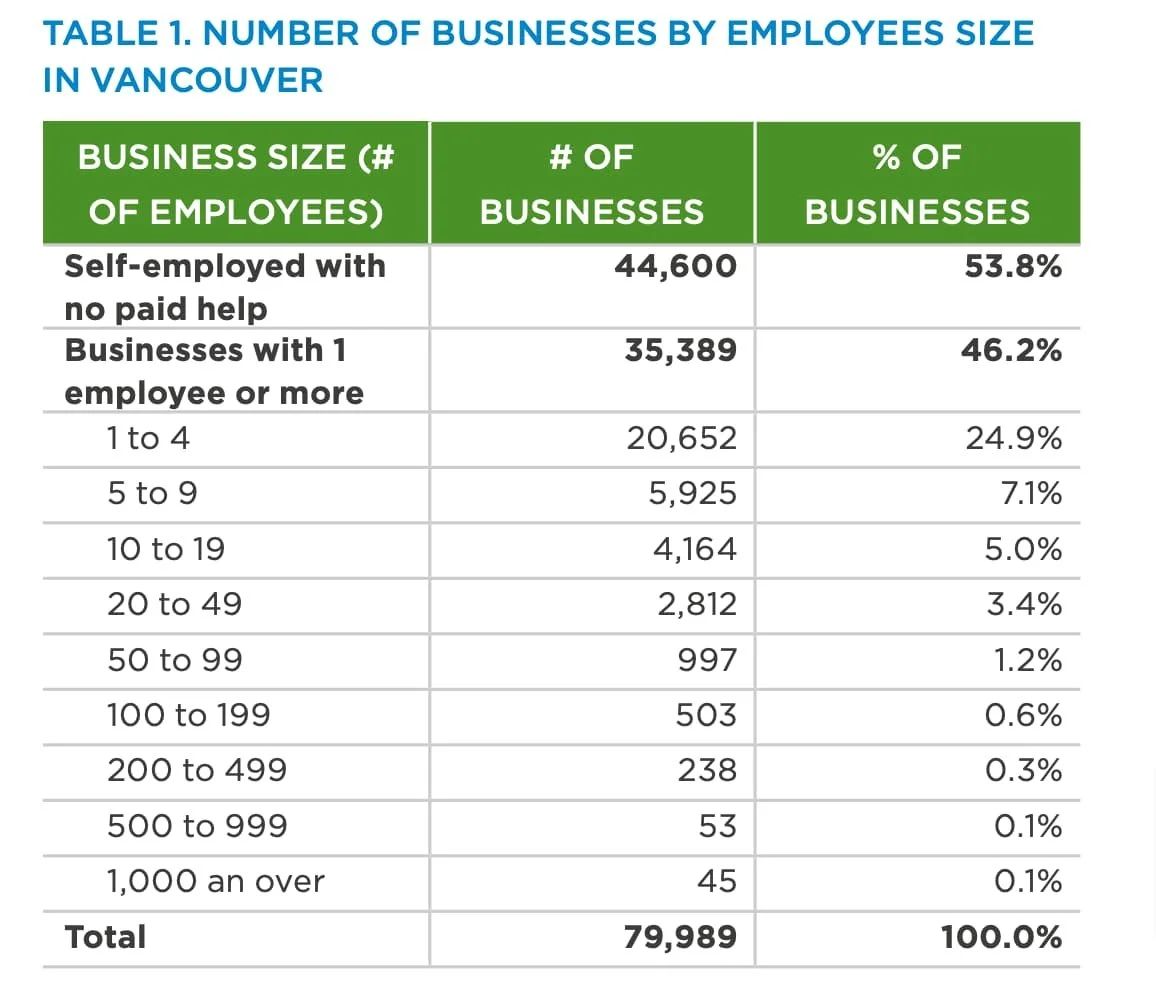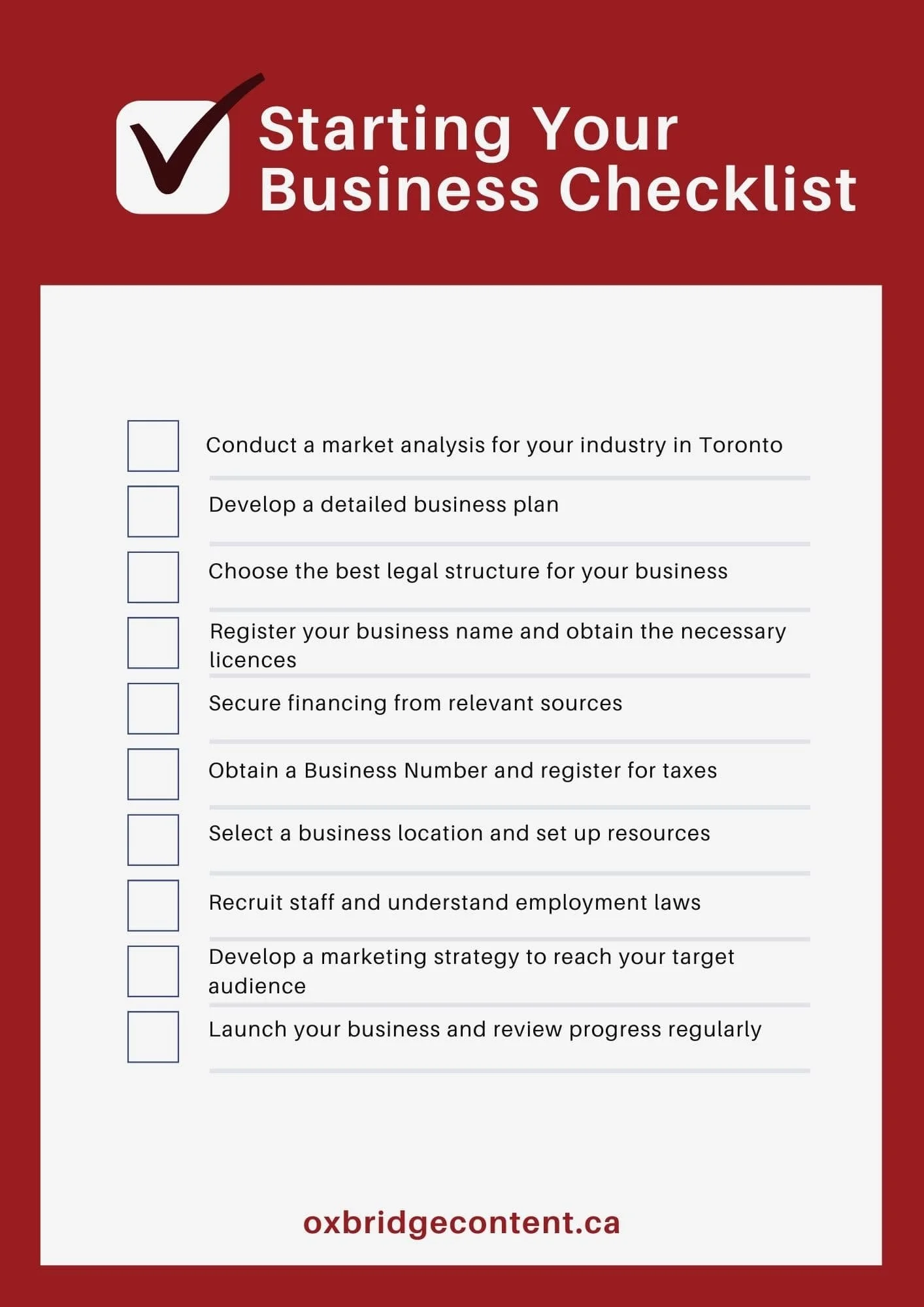How To Start a Business In Vancouver
Starting a business in Vancouver offers unique advantages for entrepreneurs. There are approximately 79,989 businesses in Vancouver, according to the official report. With its strong economy, multicultural population, and emphasis on innovation, Vancouver provides an excellent environment for new businesses.
Although launching a business in this vibrant city presents some challenges, thorough preparation and strategic planning can help overcome them.
This article provides a comprehensive guide on how to start a business in Vancouver, including essential steps and a checklist to help set up your venture successfully.
Learn how to start a business in Vancouver, Canada
Importance of a Business Plan
A business plan forms the foundation of any successful enterprise. It outlines objectives, market insights, financial projections, and growth strategies. In Vancouver, where competition can be intense, a well-crafted business plan allows entrepreneurs to define their unique value, attract investors, and secure funding.
Writing a business plan encourages business owners to address potential risks and establish a clear path toward growth, making it an indispensable part of the planning process.
The Business Layout in Vancouver
Vancouver’s economy includes thriving industries such as technology, tourism, real estate, and retail. The city's diverse economy creates a broad customer base and extensive market opportunities, so understanding how to open a business in Vancouver will set you on the right path.
However, entering the Vancouver market also requires an understanding of local consumer trends, regulatory requirements, and potential competitors.
Conducting market research to evaluate demand within your sector can help identify profitable opportunities. Networking with local organisations such as the Greater Vancouver Board of Trade and Business Development Bank of Canada (BDC) can offer valuable insights and resources that support new businesses through their initial stages.
Step 1: Select a Business Structure
Determining the most suitable structure for your business is essential, as this decision impacts taxes, liability, and ownership. In Vancouver, business owners commonly choose from the following structures:
Sole Proprietorship: Easiest to establish and offer direct control to the owner. However, it places personal liability on the owner for business debts.
Partnership: Involves two or more people sharing profits, liabilities, and decision-making. This structure can help pool resources, but it requires a clear agreement on roles and responsibilities.
Corporation: Provides limited liability to owners and a clear separation between personal and business finances. However, corporations must follow specific reporting and tax requirements.
Co-operative: Typically chosen by groups with shared goals, such as a community service or social initiative. Members collectively own the business and share profits and responsibilities.
Consulting a business advisor or legal professional can assist in selecting the best structure for your goals and ensure compliance with local regulations.
Step 2: Register Your Business Name
Once you’ve chosen a structure, the next step is to register your business name. This process involves searching the British Columbia corporate registry to ensure your name is unique and available.
Depending on the chosen business structure, registration can be completed through BC Registry Services, either online or by mail. Registering a business name is a legal requirement and establishes your brand identity in the marketplace.
Step 3: Obtain Necessary Licences and Permits
Vancouver businesses must comply with various regulations, depending on the industry. Common permits include:
Business Licence: A general licence required for all businesses operating in Vancouver, obtained from the City of Vancouver.
Zoning Approval: Necessary for brick-and-mortar businesses to ensure the location complies with zoning laws.
Specialised Permits: Certain businesses, such as those in food service or childcare, need additional permits to meet health and safety standards.
Review all relevant permits and licences for your industry to avoid potential fines or interruptions to your operations.
Step 4: Secure Financing
Funding is often essential to get a new business off the ground. Vancouver offers several options for securing financing:
Personal Savings and Loans: Many entrepreneurs start by using personal savings or loans from friends and family.
Bank Loans: Canadian banks offer various loan programs, with flexible repayment options to suit small business needs.
Government Grants: Programmes like the Canada Small Business Financing Program provide government-backed loans, easing the access to capital for new businesses.
Angel Investors and Venture Capital: For innovative or high-growth ventures, investors provide not only funding but also mentorship and networking opportunities.
A strong business plan can increase your chances of obtaining funding by showcasing the viability and profitability of your business to potential lenders and investors.
Related:
Step 5: Obtain a Business Number and Register for Taxes
All businesses need a Business Number (BN) from the Canada Revenue Agency (CRA) to operate legally in Canada. The BN is a unique identifier for handling taxes and payroll. Depending on your business’s revenue and structure, tax registrations may include:
Goods and Services Tax (GST): Required for businesses with annual taxable revenue exceeding CAD 30,000.
Payroll Tax: Necessary if you plan to hire employees.
Import/Export Tax: Relevant for businesses involved in international trade.
Working with a tax advisor helps ensure you understand your tax obligations and remain compliant with regulations.
Step 6: Choose Your Business Location
Location plays a key role in customer accessibility and overall business success. Factors to consider include target market proximity, local amenities, and rental costs. Vancouver’s real estate can be competitive, so it is worthwhile to evaluate multiple locations and negotiate lease terms carefully.
For some businesses, a virtual office or remote work arrangement might be a more flexible and cost-effective solution. Adapting your choice of location to fit the nature of your business helps streamline costs and supports operational efficiency.
Step 7: Set Up Your Business Resources and Infrastructure
Investing in essential resources—such as technology, office equipment, and inventory—is crucial for smooth day-to-day operations. For smaller businesses, leasing equipment or using subscription-based technology solutions allows scalability without large upfront costs.
Setting up a solid technological foundation can be especially beneficial. This may include a reliable point-of-sale system, a secure IT network, or cloud-based accounting software. Ensuring efficient, scalable infrastructure will support growth and minimise operational hiccups.
Step 8: Hire Employees and Comply with Employment Laws
If you plan to hire staff, it’s essential to understand the legal requirements involved, including fair hiring practices, minimum wage compliance, and health and safety standards. British Columbia’s employment laws are designed to protect workers and ensure fair treatment across industries. Important considerations include:
Hiring Process: Develop clear job descriptions and ensure a fair hiring process.
Wages and Benefits: Comply with BC’s minimum wage standards and offer any required statutory benefits.
Health and Safety: Follow the Occupational Health and Safety Regulation (OHSR) to maintain a safe work environment.
By establishing a fair and compliant workplace, you create a positive organisational culture and minimise legal risks.
Step 9: Create a Marketing Plan
A marketing plan helps establish brand awareness and attract customers in Vancouver’s competitive market. Effective strategies include:
Digital Marketing: Websites, social media, and email marketing build online presence and customer engagement.
Traditional Advertising: Flyers, posters, and print ads work well for reaching specific communities or local neighbourhoods.
Networking Events: Vancouver offers many industry events and trade shows, which are excellent for connecting with other business owners and potential clients.
Developing a clear brand identity and aligning marketing efforts with your target audience’s preferences helps build lasting customer relationships.
Step 10: Launch and Monitor Progress
Once all preparations are complete, it’s time to launch your business. To attract attention, consider hosting an opening event or an online campaign. Launching is just the beginning; regular reviews of your progress enable you to identify strengths and areas needing improvement.
Set measurable performance indicators, such as revenue targets or customer satisfaction scores. Monitoring these benchmarks quarterly ensures your business remains adaptable and responsive to market changes.
Starting Your Business – Vancouver Checklist
Conduct market research specific to Vancouver.
Develop a comprehensive business plan.
Choose the best structure for your business.
Register your business name and obtain required permits.
Secure financing and explore funding options.
Obtain a Business Number and register for taxes.
Select a business location or set up a virtual office.
Establish your resources and technological infrastructure.
Recruit staff and understand employment regulations.
Create a marketing plan and build brand awareness.
Launch your business and monitor growth.
A checklist for starting a business in Vancouver
Why Oxbridge Content Can Help You Succeed
Understanding how to open a business in Vancouver demands a structured approach. Oxbridge Content specialises in creating custom business plans designed to support new businesses in navigating market dynamics and regulatory requirements.
With expertise in business strategy and financial planning, Oxbridge Content provides the tools and support needed to build a solid foundation, leaving you to focus on growth and innovation.
Starting a business in Vancouver involves detailed planning, from market research to regulatory compliance. By following this guide and using professional assistance, you’ll establish a business ready for growth and success in Vancouver’s competitive environment.



